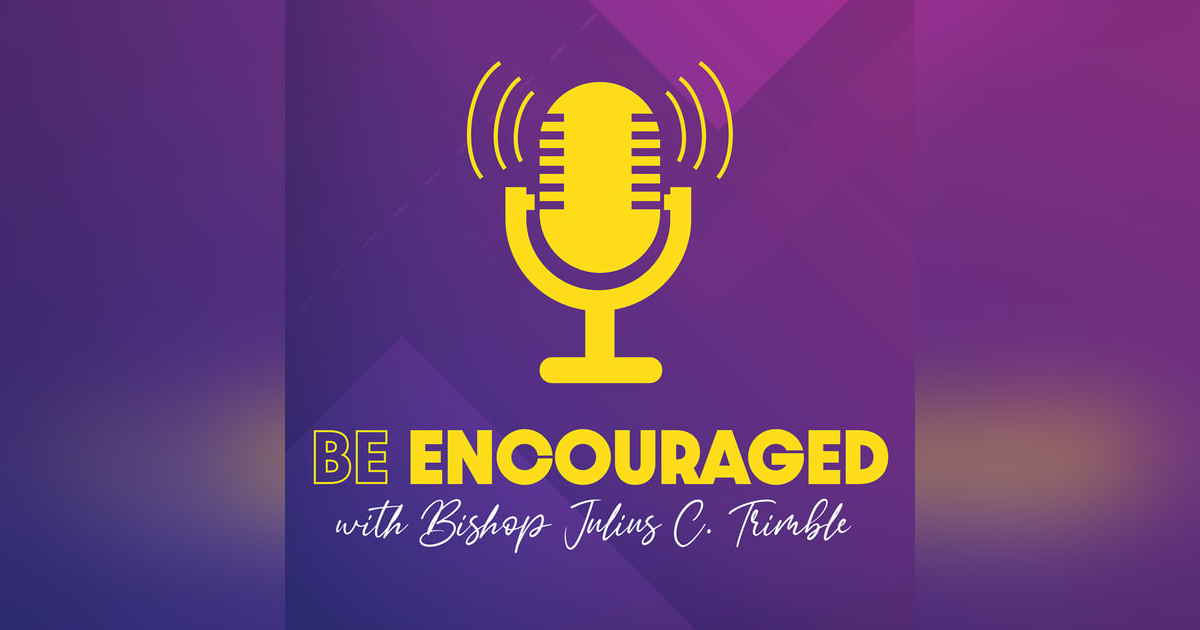"Building Peace: Empowering Students to Lead and Make a Difference with Angelo Mante from Alive Fort Wayne's Peacemaker Academy""

Bishop Julius C. Trimble is the Resident Bishop of the Indiana Area of the United Methodist Church.
Bishop Trimble has the personal mission to encourage all people with the love of Jesus Christ to rise to their highest potential. It is his commitment to his personal mission that led Bishop Trimble to create the “To Be Encouraged” Podcast along with co-host Rev.Dr. Brad Miller.
Bishop Trimble says, “I am compelled by Jesus to share with you an encouraging word or two about Jesus, theology, the Bible, the pandemic, the environment, racism, voting rights, human sexuality, and the state of the United Methodist Church.”
To Be Encouraged with Bishop Julius C. Trimble is to be published weekly and is available at www.tobeencouraged.com and all the podcast directories.
https://www.inumc.org/bishop/office-of-the-bishop/
In Episode 064 of To Be Encouraged Bishop Julius C. Trimble and Rev. Dr. Brad Miller speak with Rev. Angelo Mante from “Alive Community Outreach Fort Wayne” (www.AliveFW.org) about the “Peacemaker Academy”
Bishop Julius C. Trimble, Rev. Dr. Brad Miller and guest Rev. Angelo Mante, discussed the importance of empowering youth to become peacemakers in their schools and communities. Through the incredible work of Alive Fort Wayne's Peacemaker Academy, they highlighted the transformative impact that young people can have when given the opportunity to lead.
This episode offered valuable insights and three key takeaways for listeners.
Takeaway 1: Engaging with Youth Creates Positive Change
One of the most significant points made in the episode is the power of engaging with youth where they are. The speakers emphasized the importance of meeting young people in their communities, listening to their struggles, and providing support. By connecting with troubled youth, Alive Fort Wayne's program was able to guide them towards positive change and empower them to become advocates for peace. This takeaway reminds us that investing time and attention into young people can create a ripple effect of positive change in their lives and the lives of others.
Takeaway 2: Addressing the Triple Evils
The episode delved into Dr. Martin Luther King Jr.'s concept of the "triple evils": racism, poverty, and militarism. The speakers discussed how violence in Fort Wayne, like many other communities, is concentrated in areas affected by these triple evils. To combat violence effectively, it is crucial to address the root causes and work towards eradicating these systemic issues. The Peacemaker Academy exemplifies this by engaging students in discussions about nonviolence while focusing field trips on each of the triple evils. This takeaway serves as a reminder that peace cannot be achieved without simultaneously addressing the underlying social injustices.
Takeaway 3: Faith, Hope, and Action
A prevalent theme throughout the episode was the powerful role that faith plays in fueling the work of peacemaking. Both Bishop Trimble and Rev. Mante spoke about their faith in Jesus and the transformative power of the Spirit. Their belief in the eschatological present—that their work brings a glimpse of heaven to earth—provides them with hope and motivation, even in challenging times. Moreover, the speakers emphasized the importance of taking action, not just praying, to bring about meaningful change. This takeaway inspires listeners to integrate their faith with action, actively working towards creating a more peaceful and just world.
Conclusion:
Episode 064 of To Be Encouraged shed light on the incredible impact that youth can have when given the platform to lead and make a difference. From engaging troubled youth on a personal level to addressing the root causes of violence, empowering young leaders is key to building peaceful communities. By incorporating faith, hope, and action into their work, the Peacemaker Academy is actively creating space for heaven to touch earth. Ultimately, this episode encourages listeners to engage with youth, confront systemic injustices, and integrate their faith into tangible actions to promote peace.
Angelo Mante and students from the Peacemaker Academy will be featured in an in-depth interview on a future Episode of To Be Encouraged with Bishop Julius C. Trimble.
Alive Fort Wayne Community Outreach
Timestamped Overview of Episode
00:01:52 Podcast episode about Peacemaker Academy with Rev. Angelo Manti.
00:12:37 Transforming troubled kid into peacemaker through intervention.
00:15:42 Unexpected tragedy led to transformative purpose.
00:20:08 Angelo Mante discusses Peacemaker Academy in Fort Wayne.
00:26:14 Nonviolence leadership program expands, exceeding expectations.
00:35:58 Youth leadership and support is crucial.
00:41:59 Fear of cutting someone off in society awash with violence; myth that armed society is polite.
00:48:50 Seek positive growth, young leaders are emerging.
00:53:18 Engage young people, put faith into action.
01:01:16 Listen to Be Encouraged, share, follow, and review.


